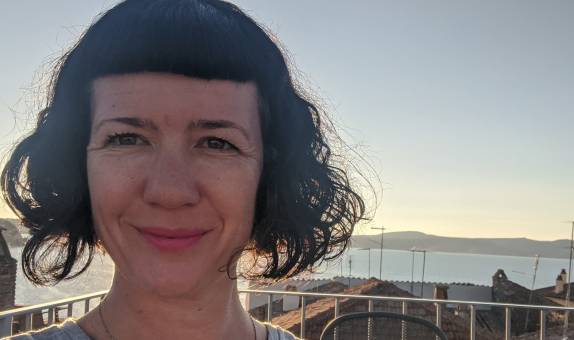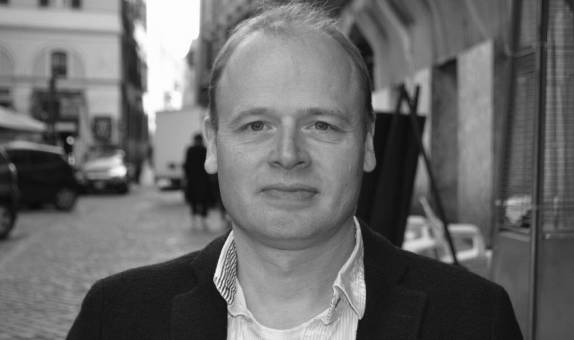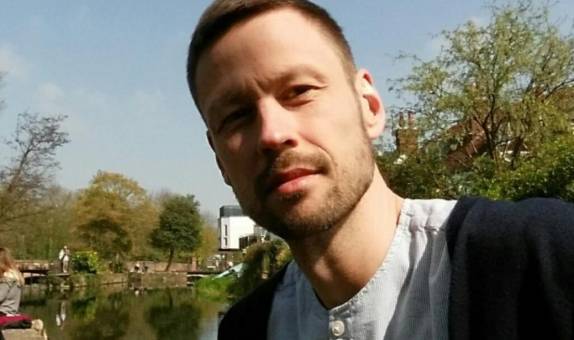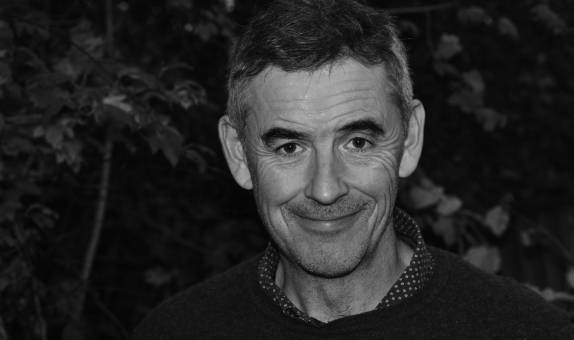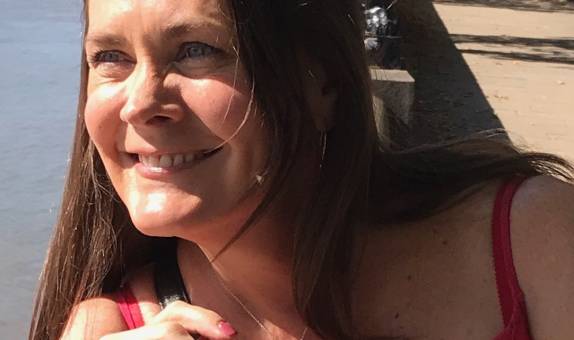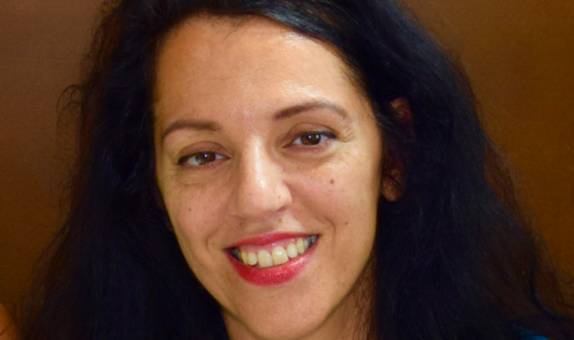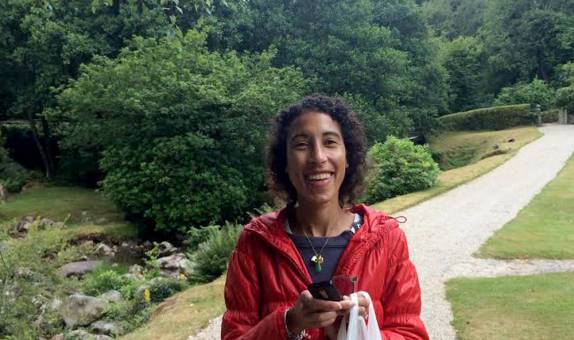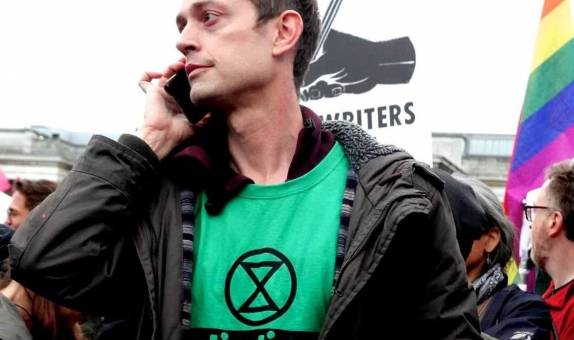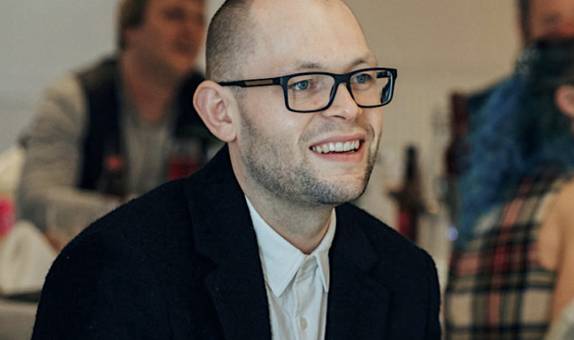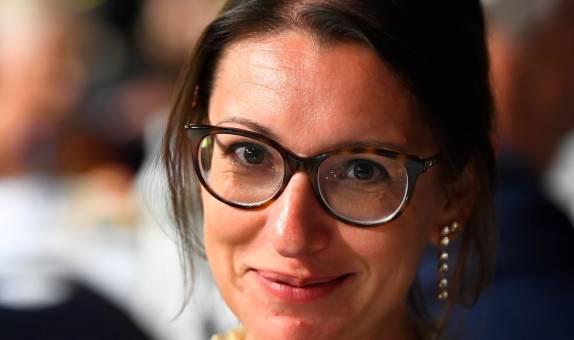English BA (Hons)

Teaching Excellence Framework (TEF) Gold award
Our commitment to high quality teaching has been recognised with a TEF Gold rating. The University has received an overall rating of Gold, as well as securing a Gold award in the framework's two new student experience and student outcomes categories.
Why choose this course?
This is a dynamic course that will both inspire and challenge you. Our English BA degree will enable you to pursue your own passions for English literature. But it will also introduce you to wholly new literary terrains and to critical approaches that will encourage you to read – and think about the world – differently.
Your learning will be supported by our course's distinctive year-long modules, highly interactive lecture-workshops, small group seminars, and one-to-one supervisions. There's also a range of assessments that will empower you to achieve your best work, including traditional essays and dissertations, critical definitions, creative responses and projects that respond to live briefs.
The course enhances your capacity to think and write critically, and provides opportunities for you to experiment with creative writing approaches. It also develops a range of professional communication skills and invites you to apply what you learn to real-world contexts beyond the University. Thus the course is designed to help you become more confident, articulate, imaginative and adaptable, which are all attributes that continue to be highly sought after in the ever-evolving professional world.
| Attendance | UCAS code | Year of entry |
|---|---|---|
| 3 years full time | Q302 | 2025 |
| 4 years full time including foundation year | Q303 | 2025 |
| 6 years part time | Apply direct to the University | 2025 |
Please note: Teaching on this course may take place on more than one KU campus.
| Main Location | Penrhyn Road |
Reasons to choose Kingston
- We offer a diverse and distinctive curriculum taught by published academic experts and creative writers.
- BA English students were 97.7% satisfied about the teaching on their course, according to the 2024 National Student Survey.
- Our writing centre, Writers' Kingston, offers opportunities to get involved or attend a great range of creative activities, including poetry festivals and guest author readings.
The Art School Experience
As part of Kingston School of Art, students on this course benefit from joining a creative community where collaborative working and critical practice are encouraged.
Our workshops and studios are open to all disciplines, enabling students and staff to work together, share ideas and explore multi-disciplinary making.

What you will study
Throughout this course, there is a strong emphasis on developing skills in critical reading, writing and analysis, as well as developing your interdisciplinary skills through the academic and teaching experts from creative writing, English literature and English language and linguistics.
You'll also develop a broad range of transferable skills, and enhance your communication and analytical abilities, from problem solving to critical evaluation, time management to organisational abilities.
Modules
Each level is made up of four modules each worth 30 credit points. Typically, a student must complete 120 credits at each level.
Year 1
Year 2
Year 3
In your first year, you will have time and space to explore different kinds of literature and various forms of writing through our core modules. We will invite you to think critically about what it means to be a student of English.
Core modules
Reading London: Drama, Poetry and Prose
30 credits
This module introduces you to the literature of London, from the rise of Renaissance theatre culture to its fictional futures, and from explorations of its urban heart to its sprawling suburbs. You will investigate how numerous writers have depicted everyday life in the metropolis, as well as social upheaval, crime and injustice. You will consider the emergence of distinct literary cultures in the capital, the ways London's position at the centre of a global empire has shaped its literature, and how writers have in turn represented the experiences of particular groups, for example, social elites, immigrants, women, and children.
The module will also introduce you to some of the most fundamental categories of literature. The module will be organised into three strands: one on drama, one on poetry, and one on prose (fiction and non-fiction). In each strand you will identify the distinctive characteristics of particular forms and genres of literature, and of modes of writing that developed at particular historical moments. Through close study of a range of literary texts we will consider, for instance, what distinguishes tragedy, comedy and realism in drama, how poets have engaged with the sonnet form or the epic, what defines the memoir, and how to explain the differences in narrative style between realist and modernist fiction.
Our weekly interactive lectures will be complemented by study trips to locations across London, which may include a visit to the Globe Theatre, the London Museum or a walking lecture following the route taken by Mrs Dalloway in Virginia Woolf's novel of the same name.
From Prospero to Potter: Reading Through Theory
30 credits
What does it mean to think critically about literature? What is literary theory and how can it be put to work? Taking both theoretical and literary texts, this module looks at how students can produce dynamic readings of literature through the use of perspectives from the worlds of philosophy and psychoanalysis. In interactive lectures and group discussions, students will explore themes such as gender, sexuality, race, class, history and the uncanny. Students will look at how language shapes literature, and how approaches to reading are both socially and historically formed.
Race, Nation, Identity: Literatures of the World
30 credits
Why are our reading practices so dominated by British writers? What happens if you turn the world map upside down? This module introduces literatures written in places other than Great Britain and considers the links between literature and the formation of cultural, national and racial identities. The module will also think about how literature can act as a mode of resistance to imperialist ideologies. In doing so, it will broaden an understanding of what constitutes ‘English' literature.
Writing that Works
30 credits
This module will introduce students to Future Skills through engagement with the Navigate programme. It will enable students to begin to develop their professional identity and global citizenship, by promoting their understanding of ethical issues and values, design thinking, and commercial awareness. These concepts and associated activities will support students to plan their own personal and professional development, as a means of developing their creative practice. This will be supported through active engagement with the Navigate programme, and through personal development planning (supported by Personal Tutors), which will enable students to reflect upon their Future Skills graduate attributes. It will also enable students to reflect on and begin to evidence their understanding of the skills.
The module provides students with the opportunity to read and examine examples of writing in a range of academic literary and non-literary forms and to employ that knowledge via practical application by composing original writing in these forms. Students will then seek to obtain feedback from peers, module tutors and personal tutors, and respond to that feedback by producing further writing they then edit and submit in the studio hours and personal tutorial sessions.
The module is arranged into two strands: writing for ‘work' and reading for writers. Initially, in weekly lecture-workshops, students will explore what makes for successful writing in different contexts and, in weekly studio hours, will practice writing effectively in various modes and to different briefs. In the second strand, the module uses a range of texts to equip students with the terminology and techniques to analyse with confidence and reflect on various kinds of successful writing, including their own.
The module equips students with the terminology and techniques to analyse with confidence various kinds of writing, including their own. In weekly lecture-workshops, students will explore what makes for successful writing in different contexts and, in weekly studio hours, will practice writing effectively in various modes and to different briefs.
In your second year, you will develop your own personal interests and passions through research-based projects and option modules that allow you to focus on particular periods and topics.
You can also study abroad or take a work placement in your second year at locations in Europe, the United States, and Australia.
Core modules
Independent Research Studies
30 credits
This module, a core module for full-field and half-field English Literature students, is all about developing your own interests and research expertise. Every year, members of staff will offer a range of texts and you will select you own special subject from amongst these, working independently but with close supervision to produce your own set of resources and an extended original essay. In recent years, available texts have included The Lord of the Rings, Never Let Me Go, Great Expectations, and Hamlet. Encouraging independent learning and research, the module develops a range of transferable critical and communication skills that are central to the degree and useful in occupations and professional tasks beyond the university, while also allowing you to develop you own critical voice.
Deadly Desires/Dangerous Discourse: Gothic Literature and Theory
30 credits
What does literature do? How does it shape individual and cultural identities? In what ways does it produce effects, construct otherness and celebrate difference? Studying a range of influential approaches to literature, this module will examine key ideas concerning the creation and interpretation of texts, from the role of language, history and cultural difference to the effects of sexuality, the unconscious, empire and technology. By applying these insights to one important genre of fiction – to works like Frankenstein, Dracula, The Beetle, Rebecca and World War Z – the module will extend practical analytical skills while introducing exciting new ways of thinking about texts.
Optional modules
Content, Form and Creativity
30 credits
On this module, students will have the opportunity to progress their creative writing skills by exploring the relationship between theory and practice. They will also explore the connection between language, form, creativity, and style. Students will be presented with a range of theoretical and contextual approaches to the production and analysis of imaginative work, and will be invited to respond to these provocations through critical and creative writing.
Students will attend interactive lectures whose themes may include adaptation, narrative techniques for literary authors, history and narrative, identity and aesthetics, and mind style etc. Students will learn more advanced practical techniques for crafting expressive, imaginative work, which will allow them to make more sophisticated use of aspects such as voice, point of view, structure, character, imagery, and tone.
Workshops will draw on the language-based disciplines of linguistics, stylistics and narratology to explore the relation between content, form and creativity. The module will entail the reading, critical analysis and discussion of texts by a variety of classic and contemporary authors, whose work reflects the diverse range of styles, influences and approaches at work today. Students can choose to experiment with writing the novel, short story, script for radio, stage or screen, or poetry.
Students will be asked to provide thoughtful, constructive feedback through peer review. Along with developing their own personal sense of voice and style, students will practise applying skills learned on the module to real-world situations faced by professional authors, such as writing a piece for a commission or for a target audience.
Being Human: Self, Subject, Identity in Medieval and Early Modern Culture
30 credits
This module is an optional period module at Level 5. The year-long module provides an introduction to the literary culture of England during the years 1380-1650. This module considers medieval and early modern English texts in relation to influential works from the continent (mostly from Italy, the ‘birthplace of the Renaissance'), and by situating canonical literature in relation to non-canonical writings of the medieval and early modern periods. You will begin by examining poetry and drama written in the late-Medieval period, including some of Chaucer's Canterbury Tales. The rest of Teaching Block One will focus on medieval drama - from mystery plays to morality plays - highlighting continuity and change with later, Renaissance drama. It will also study English literature and culture in the fifteenth and early-sixteenth centuries in relation to continental influences. Because Shakespeare's Richard II is a Renaissance play whose action takes place in the medieval period, this play provides a pivotal middle point between Teaching Blocks One and Two, which resumes in the mid-sixteenth century and continues with plays, poetry, prose and cultural documents framed on one side by the Edwardian Reformation and on the other by the English Civil War.
Sex and the City: From Victorian Metropolis to Modernist Wasteland
30 credits
This module is an optional period module at Level 5. We will study key texts from the nineteenth to early twentieth centuries that register the ways in which Britain is transformed by the Industrial Revolution, and which give expression to fears about technology, social mobility and urban culture. We will consider literature of the period that questions and resists established theories of gendered identity, and which challenges the literary representation of sexuality, defying censorship in the process. We will be introduced to writers who engage with contemporary debates about science, religion, the empire, and racial and national identity. And we will encounter a range of consciously modern texts which dislocate and make new the reader's experience by technical innovation and experiment. In recent years, writers studied have included Charlotte Bronte, Charles Dickens, Thomas Hardy, George Eliot, T.S. Eliot, James Joyce, and Virginia Woolf.
Transforming Realities: Innovation and Social Change in Twentieth Century and Contemporary Literature
30 credits
This module is an optional period module at Level 5. It will begin by exploring literature published from the 1930s through to the present day, and will examine the strategies writers have used in response to a changing Britain and wider world. We will consider how twentieth and twenty-first-century texts adapt realist, modernist and postmodern techniques to engage with issues such as the rise of mass culture, the threat of totalitarianism, the establishment of the Welfare State, post-war immigration, and sexual liberation. To enhance your perspective on these issues, you will be introduced to non-fiction material by other contemporary writers, such as J.B. Priestley, Erich Fromm, Iris Murdoch, Ludwig Wittgenstein, Richard Hoggart, and George Lamming, as well as more recent critical and theoretical material. The module also examines the development and continuing popularity of realist drama in the twentieth century. We will pay particular attention to the ways in which realist drama is used as a tool of social and political examination in the various contexts of pre-Revolutionary Russia, Dublin in the aftermath of the First World War, and the establishment of the welfare state in Britain after 1945. Secondly, we will examine the developments in non-realist forms of drama and the experiments which gave rise to what is, somewhat controversially, called the 'Theatre of the Absurd'. The module culminates with the study of a selection of texts chosen to illustrate the great variety of genres and styles in contemporary British literature and to exemplify literature written by different nationalities and social groups. Underpinned by relevant theoretical perspectives, questions will be raised about the relation between literature and contemporary events, with relation to issues pertinent to literature, such as social mobility, hybridity, democracy and technology. In recent years, authors studied have included Evelyn Waugh, Graham Greene, George Orwell, Sylvia Plath, Harold Pinter, Alan Hollinghurst, and Zadie Smith.
Screenwriting
30 credits
Film is often seen as a director's medium, rather than a writer's. This course doesn't debate the relative claims of either - it retains a strong commitment to the visual - but its primary focus is on the construction of script and, in particular, the screenplay of the mainstream narrative film. The cornerstone of the module is an exploration of what makes an effective screen story through analysis of dramatic structure. The tutors on this module, both experienced screenwriters, contend that all genres of screen narrative use essentially the same core principles of storytelling and that an understanding of how these principles work is a creative tool: we can use them to create our own stories and adapt them to different forms. First, through close study of several successful films - focusing in particular on structure and character - you will be taught the contribution of the screenplay to how a film is constructed and why it succeeds. Second, with particular emphasis on dialogue and the craft of visual storytelling, we will guide you to the creation and completion of your own short screenplay, providing you with models (in both film and script form) from a selection of short films, and teaching you how to present and format your script.
In your final year, you'll take the Dissertation module, enabling you to work in-depth on a topic of your choice under the supervision of a subject specialist.
Seminars provide a more intimate forum for the detailed exploration of texts, with student presentations and discussion.
Your final year consolidates and expands upon all your work so far. You will work closely with individual members of staff on your dissertation and final project, and you will become prepared for the world of work.
Core modules
Dissertation
30 credits
The dissertation is a core module for all full-field literature students. Under guidance from an allocated specialist member of staff, and supported by interactive workshops, you will produce a sustained piece of research, either in the form of a traditional 10,000-word dissertation or in the form of creative project and accompanying 3,000-word rationale. The module culminates in a student conference. You will work with your peers to organise this, and your contribution to it will also be assessed. An initial dissertation proposal must be submitted in September before the module begins. At the end of the module, you will have produced a critically engaged and fully developed piece of independent research.
Professional Communication Skills and Practice for Success in the Workplace
30 credits
This module covers a broad range of topics to engage students in different genres of communication to develop both spoken and written skills necessary for employability. The topics include analysing interaction in the professional setting, preparing professional documents, writing to a specific brief and presenting a professional brief. Through interactive lectures, guest talks, personal tutorials, and a workplace option where students have the opportunity to experience working practices, students are encouraged to develop skills and reflect on their own practices as a way of gaining an understanding of communication in real life and work contexts. The module's focus on professional interactional and writing skills as well as its links to Kingston's Careers and Employability Service activities and events guides students in planning their careers and developing their employability skills.
Optional modules
Radical Writers
30 credits
Salman Rushdie, Mary Wollstonecraft, Geoffrey Chaucer, Audre Lorde, Charlotte Bronte, Chinua Achebe, Mary Shelley, John Milton, Lawrence Sterne, Gertrude Stein, James Baldwin, Toni Morrison...the list is endless. At every point in literary history there are writers who break the mould and challenge the status quo. Whether it is through writing epics that endure through centuries, addressing the injustices of the time or challenging the very notion of what a novel, poem or a play can do, writers can be radical in a number of exciting ways. This module looks at works by radical writers in depth, studying one famous text in detail by a range of writers from different time periods and taught by lecturers who are experts in these writers. We will look at the context of each text as well as the way the text is written, determining why these radical writers have been so successful and looking at the effects their texts have had on the world around them. We will look at the idea of the literary 'canon', made up of writers who have been radical in some way, and consider the way that this idea can be challenged, reinvigorated or refreshed.
Making Shakespeare: Text, Performance and Adaptation
30 credits
This optional Level 6 module allows you to pursue Shakespeare studies at an advanced level and is founded upon a detailed and extensive study of the writer and his works. Consideration will be given to a range of critical approaches to Shakespeare as well as the long history and dynamic status of Shakespeare in performance and adaptation, for example in relation to questions of gender, identity and globalisation. You will be encouraged to reflect upon the role of Shakespeare in culture now as well as relevant contemporary contexts such as the nature of early modern theatregoing alongside crucial political and religious conditions. Teaching on the module will be closely aligned with the rich resources available at the Rose Theatre and in particular will afford you the opportunity to participate in the stimulating series of talks and events organised as part of the Kingston Shakespeare Seminar (KiSS).
Black and Asian Writing
30 credits
This module examines the rich and dynamic presence of black and Asian writing in English from the mid-17th century to the present. It will explore the ways in which black and Asian writers have produced formally innovative and conceptually challenging responses to questions of race, class, gender and identity, while simultaneously making significant creative contributions to the fields of drama, prose, poetry, and life-writing. In the first half of the module, students will study a range of early texts from the mid-17th century to the 19th century from writers such as Equiano and Mary Seacole, alongside contemporary works that have reflected on black culture during this period, while the second half of the module turns to 20th century and contemporary texts by writers such as Zadie Smith, Andrea Levy, and Salman Rushdie contextualised by appropriate critical and cultural theories from thinkers such as Paul Gilroy and Stuart Hall.
Gender and Sexuality
30 credits
This module traces how literature from the 19th century to the present has concerned itself with questions of gender identity and sexuality, often offering a radical voice for those - including both women and LGBTQ+ voices - excluded from dominant and mainstream discourses. Rooted in feminist and queer theory, we will explore how feminist writing has critiqued patriarchy, how literature has challenged normative gender roles, how it has engaged with powerful questions regarding the body and the politics of desire, and how it has represented the debates within different facets of the feminist and queer community. We will also consider how writers have employed literary form and genre - for example the use of experimental writing, dramatic or poetic form, or the romance genre - and to what extent debates surrounding these forms and genre contribute to a gendered politics of cultural production. Explicitly intersectional in its approach, we will frame our discussions with an interrogation of how the politics of gender and sexuality is shaped by its relationship with questions of class, race, disability, and religion. Examples of authors studied might include Jeanette Winterson, Fleur Adock, Carol Ann Duffy, Tony Kushner, Clare Macintyre, Leila Aboulela, Mary Wollstonecraft, and Virginia Woolf.
Special Study: Narrative Techniques in Popular Fiction
30 credits
This challenging and interesting special study module aims to provide you with the opportunity to engage with different examples of popular fiction such as crime fiction, romance, the thriller, and science fiction. It will enable you to identify the standard practices of popular genres and understand why they succeed or fail in particular texts. It will encourage you in the critical study of narrative techniques to best learn how to apply them in a work of popular fiction. You will experiment in writing crime, SF, thriller and romance stories before choosing one or two of these genres to take through to your final submission. All this will be put into the context of more general and transferable lessons to be learnt in the art of compelling storytelling.
For each genre studied you will read two core novels, plus a more general theoretical text on narrative construction. The module is lead by a writer of four published crime/thrillers.
Special Study: Innovations in Poetry and Prose
30 credits
This module will cover the study of a number of different kinds of poetry and prose, with a focus on innovations in contemporary literature. It will examine some of the 20th- and 21st-century movements that have informed, and continue to influence, contemporary poetry and prose. These include modernism, dada, surrealism, sound poetry, visual poetry, constraint-based writing, the nouveau roman and "language" poetry, as well as the aesthetic and stylistic theories underpinning them (for instance, in manifestos and essays about poetry written by the poets and writers themselves).
Attention will be given to the contextual aspects of poetry and prose, as well as the content. The course will explore the reasons poets and writers innovate, the reasoning for experimentation and the ways in which poets and writers shape and structure poems and prose, exploring the nature of sound and language itself. The content of such works will be explored, which may involve non-traditional subject matter or interactions with other art forms, such as music or the visual arts, and their theoretical underpinning too (literary, social, theoretical, historical, stylistic). Analysis of the works studied will be reinforced by practical exercises and assignments designed to enable students to understand these concepts in relation to their own creative work, and to offer them the opportunity to experiment with their own writing and poetry.
Students will make poetry and prose portfolios and/or recorded readings which they can use as part of their writing CV, and which may be featured in the end-of-year Awards and Achievement Show.
Please note
Optional modules only run if there is enough demand. If we have an insufficient number of students interested in an optional module, that module will not be offered for this course.
Foundation year – Humanities & Arts
You can also study this course with a Foundation year.
Future Skills
Knowledge to give you the edge
Embedded within every course curriculum and throughout the whole Kingston experience, Future Skills will play a role in shaping you to become a future-proof graduate, providing you with the skills most valued by employers such as problem-solving, digital competency, and adaptability.
As you progress through your degree, you'll learn to navigate, explore and apply these graduate skills, learning to demonstrate and articulate to employers how future skills give you the edge.
At Kingston University, we're not just keeping up with change, we're creating it.

Entry requirements
Teaching and assessment
Scheduled learning and teaching on this course includes timetabled activities including lectures, seminars and small group tutorials.
It may also include critiques, project work, studio practice and performance, digital labs, workshops, and placements.
Who teaches this course?
Many of the teaching team are published authors, with extensive experience and professional links: they will help you to develop your skills, networks and gain access to industry contacts. Their expertise and knowledge is closely matched to the content of the modules on this course.
Academic teaching is supported by visiting speakers and guest lecturers who enhance your learning.
Course fees and funding
Additional costs
Depending on the programme of study, there may be extra costs that are not covered by tuition fees which students will need to consider when planning their studies. Tuition fees cover the cost of your teaching, assessment and operating University facilities such as the library, access to shared IT equipment and other support services. Accommodation and living costs are not included in our fees.
Where a course has additional expenses, we make every effort to highlight them. These may include optional field trips, materials (e.g. art, design, engineering), security checks such as DBS, uniforms, specialist clothing or professional memberships.
Facilities
The campus at Penrhyn Road is a hive of activity, housing the main student restaurant, the learning resources centre (LRC), and a host of teaching rooms and lecture theatres.
At the heart of the campus is the John Galsworthy building, a six-storey complex that brings together lecture theatres, flexible teaching space and information technology suites around a landscaped courtyard.
After you graduate
This course is designed to foster a range of transferable skills desirable to employers, such as advanced literacy and communication skills, critical thinking, organisational skills, intercultural awareness and the ability to work independently and collaboratively with others in a team.
After you graduate you'll have many career opportunities open to you, in a wide range of fields including public relations, publishing, journalism, advocacy and campaigning, copy writing, advertising and marketing, management, the legal professions, administration, business and training. Many have also been published.
Key information set
The scrolling banner(s) below display some key factual data about this course (including different course combinations or delivery modes of this course where relevant).
Course changes and regulations
The information on this page reflects the currently intended course structure and module details. To improve your student experience and the quality of your degree, we may review and change the material information of this course. Course changes explained.
Programme Specifications for the course are published ahead of each academic year.
Regulations governing this course can be found on our website.



